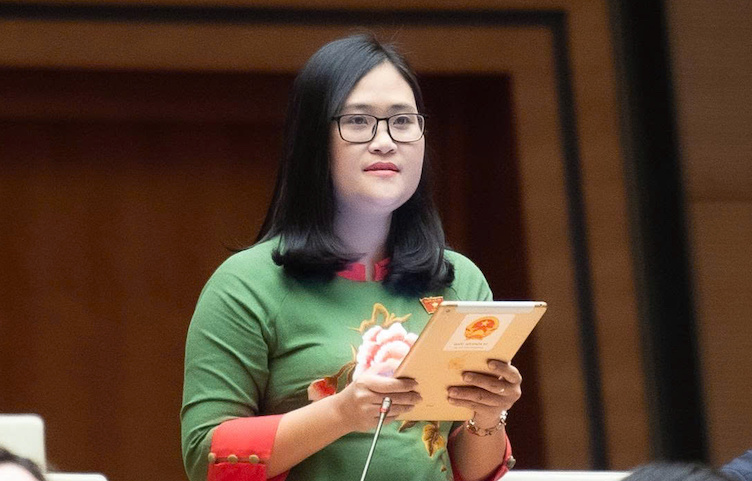Proposal for a 30% allowance for school staff from January 1, 2026
On the afternoon of November 20, the National Assembly continued to discuss the draft Law amending and supplementing a number of articles of the Law on Education; the draft Law on Higher Education (amended); the draft Resolution of the National Assembly on specific mechanisms and policies to implement Resolution No. 71 of the Politburo on breakthroughs in education and training development.
According to the draft resolution on specific mechanisms and policies, the preferential allowance level for vocational training is implemented according to the roadmap for public preschool and general education institutions, with a minimum of 70% for teachers and 30% for school staff; teachers in areas with particularly difficult socio-economic conditions, border areas, islands, and mountainous ethnic minority areas are entitled to 100%.
Delegate Ha Anh Phuong (Phu Tho delegation) said that the above regulation is in line with the spirit of Resolution 71 of the Politburo, however, it is necessary to clarify the roadmap for applying preferential allowances for these two groups of subjects.

Specifically, for school staff, delegate Anh Phuong said that they account for a small proportion in the school but play a very important role in operations.
"There are full-time positions similar to civil servants but not entitled to public service allowances; they work in the education sector but are not entitled to seniority allowances or professional incentives like teachers" - delegate Anh Phuong said.
The draft currently stipulates a minimum of 30% for employees and 70% for teachers and delegates to propose, it is necessary to immediately apply the 30% allowance for school staff from January 1, 2026.
"This group is suffering a sharp increase in the workload due to the requirements of digital transformation and new general education programs: STEAM, STEM, safety experimentation activities, digital classrooms, smart classrooms... Therefore, the immediate application of a 30% allowance is the minimum level to retain staff, ensure school operations, perform tasks according to Resolution 71 and narrow the income gap between teachers and staff" - delegate Ha Anh Phuong analyzed.
In addition, the delegate proposed to clarify the roadmap for applying preferential allowances for preschool and general education teachers with 1 of 2 options:
Option 1: Add a point to Clause 2, Article 2 stipulating basic salary allowances corresponding to titles from 1 to 1.8 for teachers, similar to Clause 1, Article 4 of the draft decree on salary policy, allowances, and attraction support for teachers in the dossier submitted to the National Assembly for approval of the Law on Teachers at the 9th session.
Option 2: From January 1, 2026, a vocational preferential allowance of 65% will be applied to teachers of preschool and general education institutions, and 100% to teachers in particularly difficult areas, border areas, islands, ethnic minority mountainous areas and safe communes. Then, increase by 5% per year; after 2030, based on the socio-economic situation to adjust appropriately, ensure compliance with the provisions of Point a, Clause 1, Article 23 of the Law on Teachers: Teacher salaries are ranked highest in the administrative career salary scale system, contributing to achieving the target of Resolution 71.
Balancing resources for policy implementation
Issues of caring for teachers' lives are also a concern of delegate Do Huy Khanh (Dong Nai delegation). At the meeting this morning, delegates expressed their agreement with the National Assembly on the provisions in the Draft Resolution. However, he also raised concerns and raised the issue of resources to implement the policy.

He analyzed that teachers are currently enjoying allowance policies. If they increase by a small number, the State budget will be very large because the teaching staff accounts for a large number of people. While many teachers and staff are looking forward to salary increases from January 1, 2026.
"Where and how are the resources to be implemented, we have to sit with the Ministry of Finance and give specific figures to report to teachers that we will implement.
If we do not do it, the teachers will just look and think that in the end, there will be nothing" - the delegate said.











